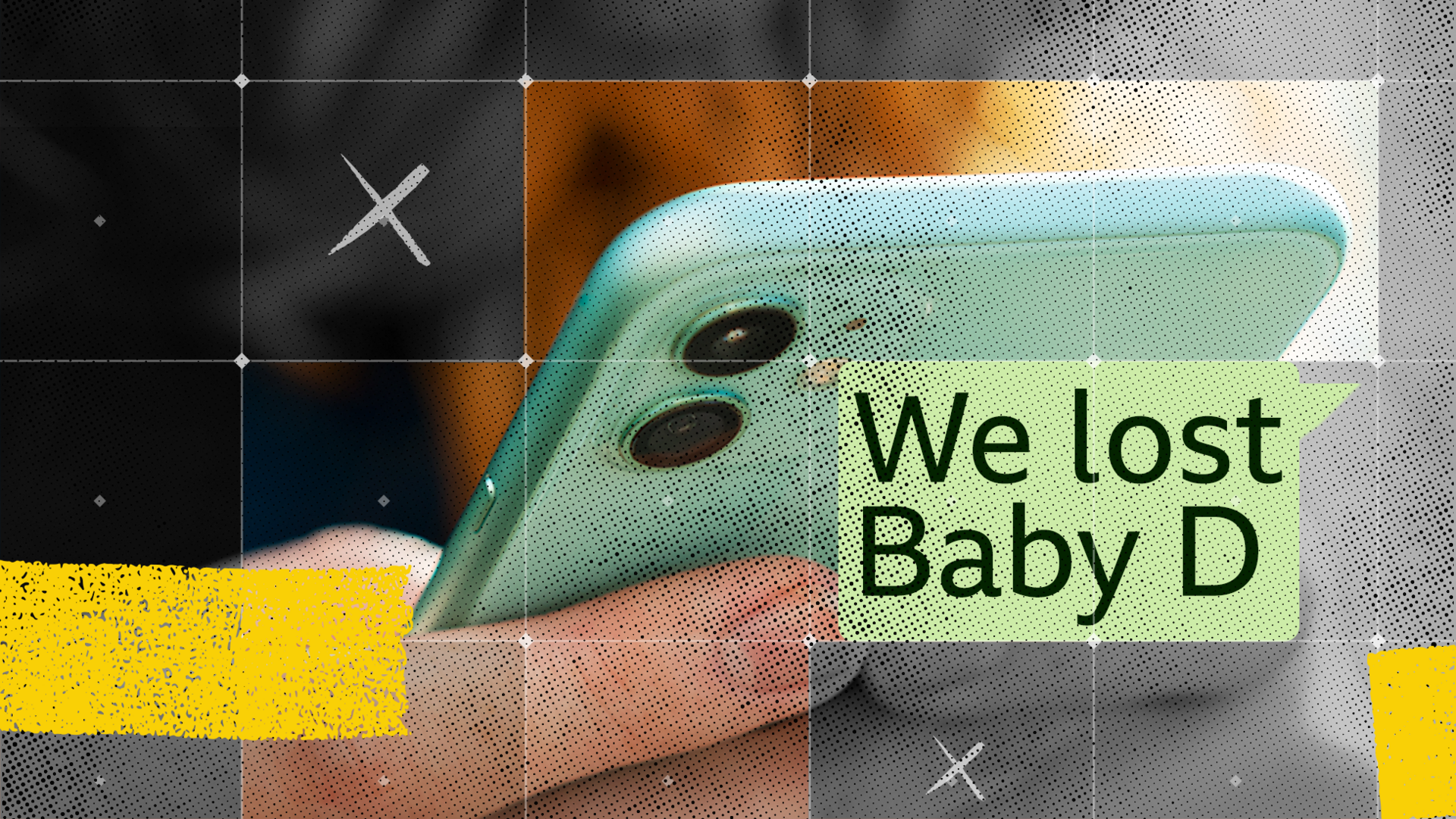Victims' parents: 'Letby is a hateful human being who took everything from us'
- Published
Watch: Twins' parents: "They passed him to us and he died"
The parents of twin brothers who were among Lucy Letby's 13 victims have told the BBC the nurse is a "hateful human being" who has taken "everything" from them. Letby murdered one of their baby boys, and tried to kill the other twin the following day.
Letby has been found guilty of murdering seven babies, and trying to kill six others, at the Countess of Chester Hospital. There were six more attempted murder charges. She was found not guilty of two and the jury was undecided on the remaining four.
To protect the identities of the babies and their parents, the twins are referred to as Baby E and Baby F.

"We were actually told we would never have our own children," the babies' mother says, speaking to BBC Panorama. She found out she was having twins on Valentine's Day, in 2015, after several failed IVF attempts.
It had not been the plan to have the babies at the Countess of Chester Hospital, where Letby worked. It wasn't their nearest hospital, but when the time came that was where there was space.
The twins were born prematurely, in the summer of 2015, and despite them needing specialist care in the neonatal unit, their father remembers the joy he felt as a new dad.
"There was just a sheer elation and happiness that I'd never felt before, or since," he says now.
Warning: This article contains details some readers may find upsetting
After the birth, the babies' mother would come down from the maternity ward where she was recovering from a Caesarean section to drop off breast milk.
Her babies, who lay side-by-side in incubators, were doing well and the family was waiting to be transferred to a hospital closer to home. But as she approached their room one evening, she could hear intense crying that sounded like screaming.
"I've never heard anything like it since," the mother says. "I was like, 'What's the matter with him?'"
"It was a sound that should not come from a tiny baby," she said while giving evidence at Letby's trial, in November.

Baby serial killer Lucy Letby

Walking into the room she discovered it was one of her babies - Baby E - making the noise. He had blood around his mouth. Rushing to comfort him, she gently put her hand on his tummy to give him a reassuring sign that she was there.
She'd been taught this in hospital - and normally it worked. But the baby continued screaming and she could feel her panic rising.
Letby was the only other person in the room. The child's mother remembers she wasn't near her baby and didn't look at him while she was in there.
"You know when it feels like somebody wants to look busy, but they're not actually doing anything?" she says now.
She asked Letby what was wrong with her son. The nurse told her the baby's feeding tube must have been rubbing the back of his throat. She said she had already called a registrar, who would be there soon.
Letby, an experienced nurse who the mother trusted, told her not to worry, to go back to her ward and that she'd be contacted if there was a problem. "She has this really calm demeanour about her," the mother told the BBC. "She's very softly spoken."
The parents had struck up a rapport with Letby - they were all on first name terms. They'd shared their story with the neonatal staff; their journey to starting a family, and the obstacles they'd faced. Letby had told them about her life. She was happy being single, she told them, and was hoping to buy a house.
When the baby's condition deteriorated later on, his mother rushed back to the unit, where she watched through the glass as medics crowded around his incubator, attempting to resuscitate her son.
She remembers Letby was there but didn't make eye contact with them.
By the time the baby's father arrived, a priest had been called, and the parents were taken to be with their child. "We were told to talk to him, and hold his hand," says the mother, "and then he was christened."
Eventually, the consultant told them there was nothing more that could be done. "She said: 'It's no good. We want him to die in your arms rather than being worked on'," she says through tears.
"And they passed him to us, and he died."

The parents remember Letby looking visibly upset. The nurse then took control of the situation.
"She bathed him and then she dressed him in a little woollen gown and gave him back to us," says the mother, "and we held him for a little bit longer."
Doctors decided the cause of Baby E's death was a bowel condition, and that his premature birth was a factor. The death wasn't initially considered suspicious, so no post-mortem examination was carried out.
In court, the mother said she had been "totally surprised" when Letby presented her and her husband with a memory box containing a lock of the baby's hair and his hand and footprints. Letby had also taken photos of him, without their knowledge, and presented those to the parents too.
The mother said the nurse had given both twins a cuddly toy and later showed her a photo of her surviving baby, Baby F, holding his twin brother's teddy.
"She said: 'He rolled over and hugged his bear - I thought it was so amazing I took a picture for you,'" the mother remembers Letby saying.
At the time, this anecdote was comforting to the parents. But soon they realised new born babies can't roll over - their neck and arm muscles aren't strong enough - and it became one of many disturbing things they now view very differently.

During the trial, medical experts concluded that Baby E had not died as a result of his premature birth or a bowel condition, as previously thought.
His cause of death was internal bleeding and an injection of air into his bloodstream.
He was the fourth of seven babies murdered by Lucy Letby between June 2015 and June 2016. She attempted to murder another six infants - including Baby E's twin brother, Baby F, who suddenly deteriorated and became critically ill within 24-hours of his sibling's death.
Having just lost one child, the parents did not want to leave the side of their surviving baby. They were told his heart rate had become dangerously high.
"I said to my husband: 'Please, not again, we - we can't do this again, this can't be happening.'" She remained by his cot all night.
Medics managed to save Baby F and the parents were told their son had an infection. It was only two years later that they learned that his intravenous feedbag had been poisoned with insulin.
They say their child, who is now seven years old, was badly harmed by Letby and has been left with severe learning difficulties and "a lot of complex needs". "There's a consequence," his mother says, "and he's living with it."
Letby has "taken everything from us - absolutely everything," she says. "I think she's a hateful human being."

In 2018, when Letby was first arrested, Baby E and F's parents found it difficult to believe that she was the suspect. "Never in a million years did I think it would be someone that we felt we had a connection with," says the mother now.
"She had everything going for her, and then starts killing babies. What happened?" she asks. "It's something that we'll never know."
In court, the couple discovered the nurse had repeatedly searched their names on Facebook - including on Christmas Day.
Letby maintained she was simply checking how Baby F was doing - the baby whose heart she'd deliberately sent soaring with dangerous amounts of insulin, and whose twin brother she had killed just 24 hours before.
The babies' mother now believes Letby should spend the rest of her life behind bars. "What she's done has changed the course of our life forever."
Watch Panorama's full investigation - Lucy Letby: The Nurse Who Killed - on BBC iPlayer
If you, or someone you know, have been affected by the issues raised here, there are details of organisations that may be able to offer support on the BBC Action Line
Related topics
- Published18 August 2023
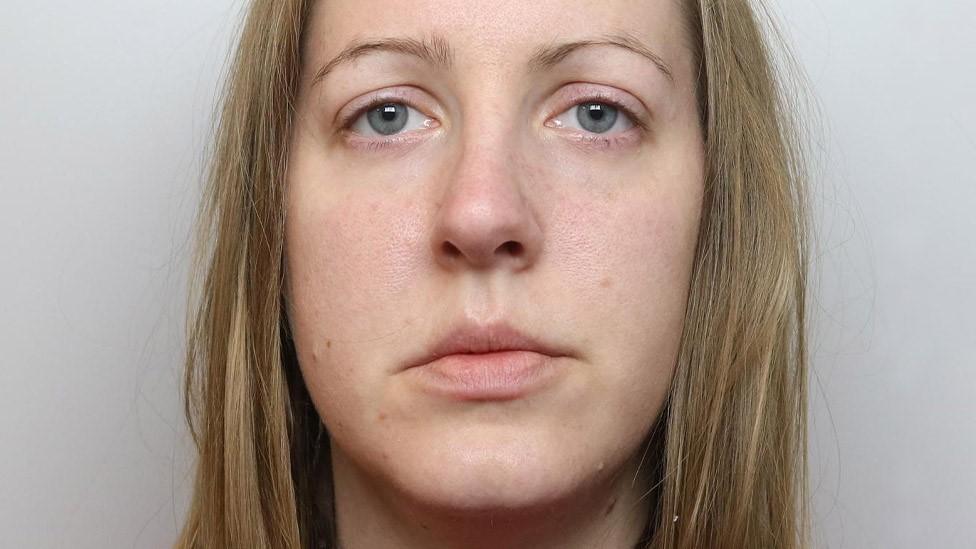
- Published18 August 2023
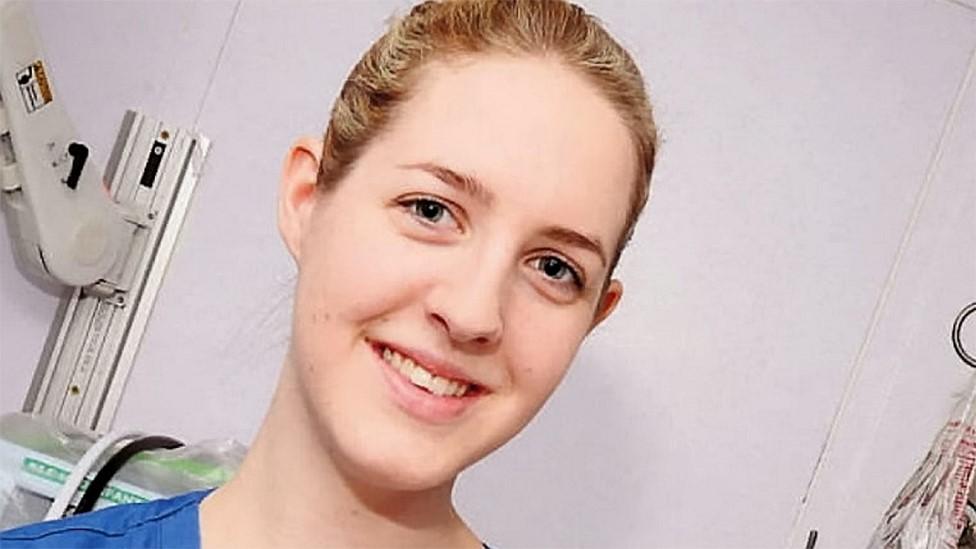
- Published18 August 2023

- Published18 August 2023
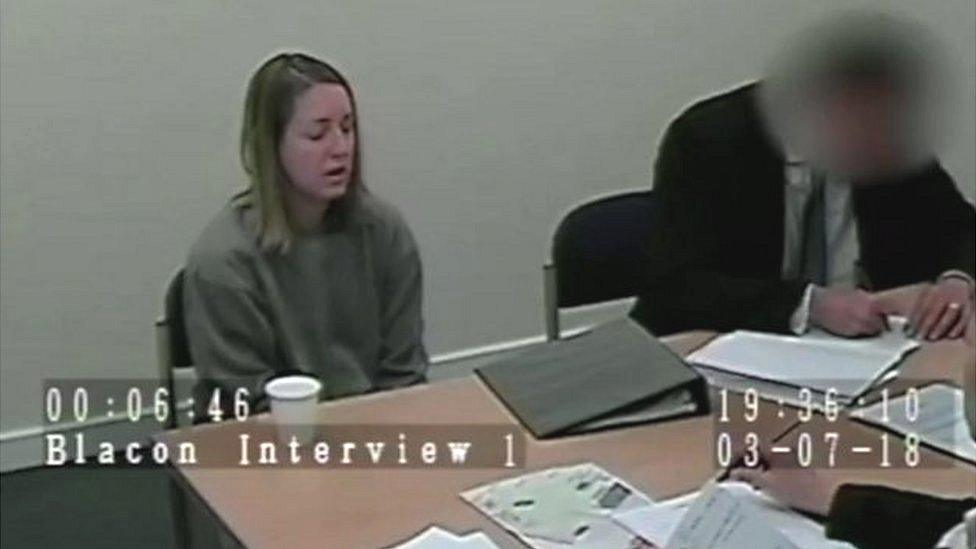
- Published18 August 2023
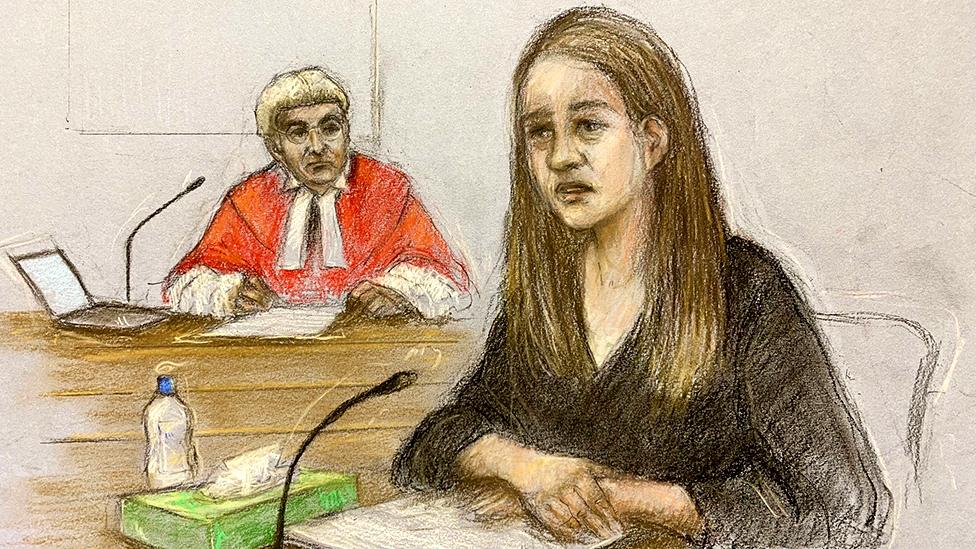
- Published18 August 2023
